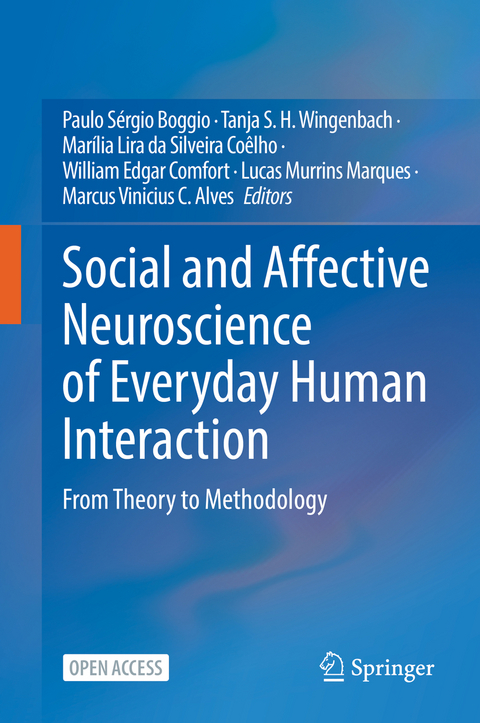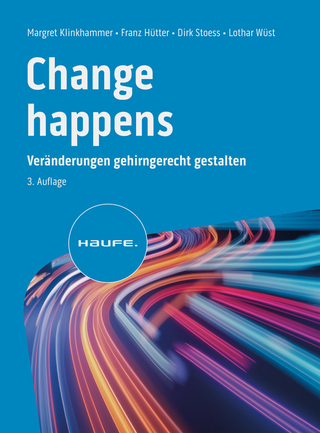
Social and Affective Neuroscience of Everyday Human Interaction
Springer International Publishing (Verlag)
978-3-031-08650-2 (ISBN)
Paulo Sergio Boggio holds a Bachelor's degree in Psychology, MSc and PhD from the University of Sao Paulo. He leads the Social and Cognitive Neuroscience Laboratory at the Center for Health and Biological Sciences, Mackenzie Presbyterian University. He is a Professor in Developmental Disorders and Psychology at Mackenzie Presbyterian University. He is a CNPq researcher Fellow and a Fellow of the Association for Psychological Science. In 2011, he was elected an Affiliate Member of the Brazilian Academy of Sciences. He has wide experience in the field of Psychology, with an emphasis on Social and Affective Neuroscience. He also has experience with the use of non-invasive techniques of brain stimulation, high density EEG, eye-tracking, and other techniques. Tanja S. H. Wingenbach holds a B.Sc. degree in Psychology from the University of Luxembourg, a MSc degree in Clinical Psychology from the University of Basel and a PhD in Psychology from the University of Bath. From 2017-2019, she held a post-doctoral fellowship at the Social and Cognitive Neuroscience Laboratory, Mackenzie Presbyterian University in Sao Paulo. Currently she is a post-doctoral senior research fellow at the University of Zurich / University Hospital Zurich. Her research falls within emotion sciences with a focus on the processing and expression of facial emotion and encompasses typical as well as atypical populations. Marilia Lira da Silveira Coelho graduated as a physiotherapist from the University Center of Bahia - FIB and holds a MSc from the Federal University of Bahia and a PhD from Mackenzie Presbyterian University. She is currently a researcher at the Social and Cognitive Neuroscience Lab and professor at the physiotherapy course at Mackenzie University. She studies multisensory integration, visuospatial perception, perceptual illusion, body image, transcranial direct current stimulation and Functional Near Infrared Spectroscopy. William Edgar Comfort received his B.S. in Psychology from Bangor University, MSc in Neuropsychology from the University of Bristol and his PhD in Neuroscience and Cognition from UFABC. He was previously an Associate Professor of Educational Psychology at Osasco University and is currently a Guest Lecturer on the specialization course in Applied Neuroscience and Psychology and a FAPESP post-doctoral fellow in the Social and Cognitive Neuroscience Lab, at Mackenzie Presbyterian University. Lucas Murrins Marques obtained his Bachelor in Psychology from Mackenzie Presbyterian University in 2014, holds a Master's degree in Basic Psychology from Minho University (2013) a Master's in Developmental Disorders from Mackenzie Presbyterian University (2016) and a PhD in Developmental Disorders from Mackenzie Presbyterian University (2020). He is currently a post-doctoral research fellow at IMREA from the Faculty of Medicine of University of Sao Paulo. His main research interests are in brain stimulation, psychophysiology, machine learning, neurophysiology, neuropsychology, rehabilitation, emotion regulation and wellbeing. Marcus Vinicius Alves has a PhD from Universidade Federal de Sao Paulo, and experience as a Visiting Researcher at Memorial University of Newfoundland (St. John's, Canada) and as a Research and Development Specialist at Universite du Luxembourg (Esch-sur-Alzette, Luxembourg). Currently, Marcus Vinicius Alves is a professor at the Faculty of Science and Technology - UNIFTC SALVADOR(Salvador, Bahia). Alves' research interests include learning, mental effort (attention control and cognitive load), incidental and motivated forgetting, and social cognition, mainly utilizing behavioral experiments, fNIRS, eye tracking, and pupillometry.
Molecular imaging of the human emotion circuit.- The neurocognitive mechanisms of unconscious emotional responses.- Social and Affective Neuroscience of Embodiment.- The neuroscience of beauty.- Mirror Neurons ... in action: ERPs and neuroimaging evidence.- Sex differences in social cognition.- Development of morality and emotional processing.- Trust in Social Interaction: From Dyads to Civilizations.- The time has come to be mindwanderful: Mind wandering and the intuitive psychology mode.- Social Cognition development and socio affective dysfunction in childhood and adolescence.- Clinical neuroscience meets second-person neuropsychiatry.- EEG and ERPs in the study of Language and Social Knowledge.- fMRI and fNIRS methods for social brain studies: hyperscanning possibilities.- Modulating the Social and Affective Brain with transcranial stimulation techniques.- What our eyes can tell us about our social and affective brain?.- Facial EMG - Investigating the interplay of facial muscles and emotions.
| Erscheinungsdatum | 01.12.2022 |
|---|---|
| Zusatzinfo | XXXIII, 302 p. 55 illus., 48 illus. in color. |
| Verlagsort | Cham |
| Sprache | englisch |
| Maße | 155 x 235 mm |
| Gewicht | 661 g |
| Themenwelt | Medizin / Pharmazie ► Studium |
| Naturwissenschaften ► Biologie ► Humanbiologie | |
| Naturwissenschaften ► Biologie ► Zoologie | |
| Sozialwissenschaften ► Soziologie | |
| Schlagworte | Clinical neuroscience • Embodiment • Interpersonal Neuroscience • Mirror Neurons • moral emotions • open access • Rapid Emotional Responses • social bonding • Social Cognition |
| ISBN-10 | 3-031-08650-3 / 3031086503 |
| ISBN-13 | 978-3-031-08650-2 / 9783031086502 |
| Zustand | Neuware |
| Informationen gemäß Produktsicherheitsverordnung (GPSR) | |
| Haben Sie eine Frage zum Produkt? |
aus dem Bereich


